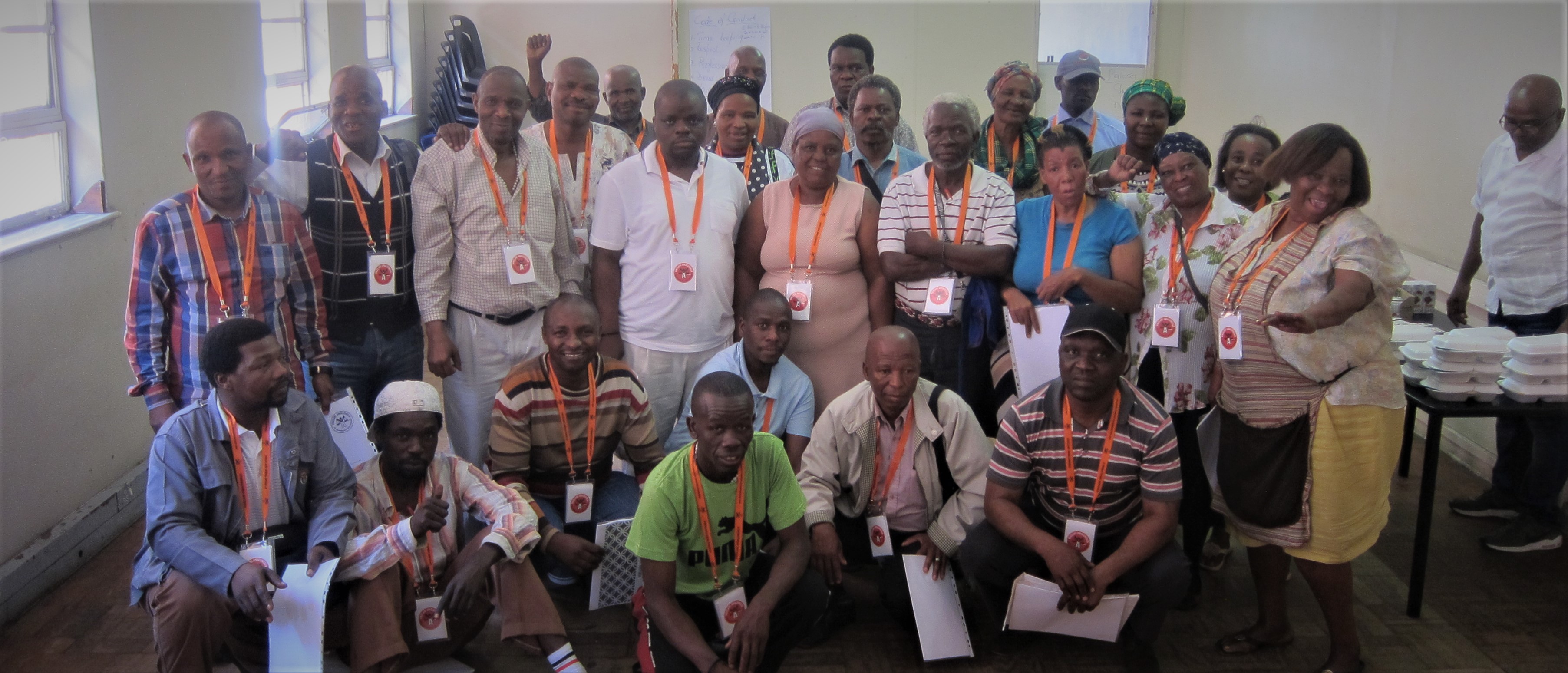Zilungele Nkosi
The Know your Rights’ initiative aims to educate and equip informal workers operating in public spaces with legal knowledge which plays a direct and indirect role in their day to day lives. There is a general lack of knowledge and awareness about the municipal by-laws which tends to make life difficult for traders. The Know your Rights’ initiative led to the establishment of incident forums; regular meetings held with trader committee leaders and facilitated by Asiye eTafuleni to discuss enforcement challenges and empower traders on how to independently engage with by-laws, policies and other ancillary issues. Through regular engagement with traders, the main challenges experienced were identified and a guideline developed that would support traders against the unfair and differential treatment that has been going on for decades.
At the Workshop Launch on the 9th of October 2019, AeT welcomed around 30 trader committee leaders in attendance who represent over 21,000 informal workers across Durban’s inner-city, and then introduced the Vikelani Amalungelo booklets – a resource which consists of six segments;
(1) Right to trade on the streets of Durban,
(2) Right to a permit,
(3) Rights of traders upon impoundment of goods,
(4) Rights of traders when goods have been destroyed by municipal officials,
(5) Traders rights on infrastructure development and demolitions,
(6) Right to information on policy adoption, amendments and implications.
Each segment identifies an infringed right and applicable remedies for the traders, which was explained in detail to the traders’ present. The content was compiled by our legal team in a manner intended to accommodate the needs, ability and capacity of the traders and were written in the local native language, commonly used in the province, isiZulu. The booklets are packaged in a protective pouch with a lanyard, enabling traders to store and access these guidelines with ease.




Patric Ndlovu welcoming the Trader Committee Leaders to the Launch
Towards the end, a questionnaire was distributed to collect information from each trader receiving the booklets, including their trading zone, trading goods and the main challenges arising in their sector. Volunteers and interns assisted some of the traders who had difficulty completing the form, which provided further insights that affirmed the need for the project.
This project, Vikelani Amalungelo: Uma singabambisana singenza kangcono (isiZulu for “Protect our Rights: If we all work together, we can do better”) was named and the logo conceptualised with the traders who attend the incident forums. The symbol represents for them their role in holding up the scale, to balance the scales of injustices, which this project signifies quite profoundly in the city.
Traders’ received their Vikelani Amalungelo booklets and then celebrated over lunch together before departing. The launch was the beginning of a broader dissemination strategy where this year alone up to 2,000 informal workers will be resourced with their legal entitlements.

